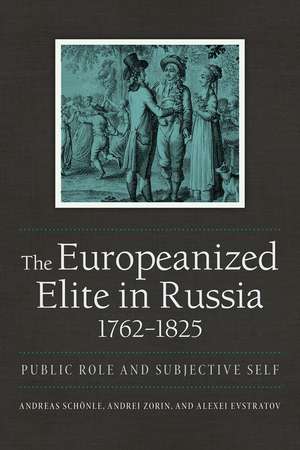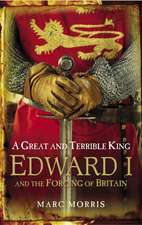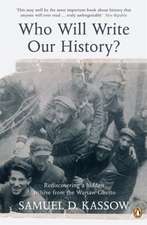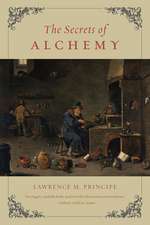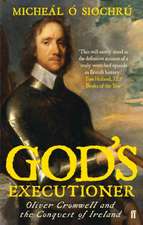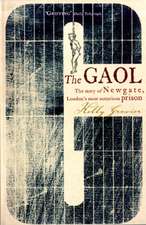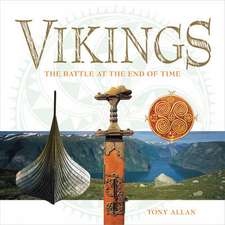The Europeanized Elite in Russia, 1762–1825 – Public Role and Subjective Self: NIU Series in Slavic, East European, and Eurasian Studies
Autor Andreas Schönle, Andrei Zorin, Alexei Evstratoven Limba Engleză Paperback – 21 noi 2016
This illuminating volume provides a new understanding of the subjective identity and public roles of Russia’s Europeanized elite between the years of 1762 and 1825. Through a series of rich case studies, the editors reconstruct the social group’s worldview, complex identities, conflicting loyalties, and evolving habits. The studies explore the institutions that shaped these nobles, their attitude to state service, the changing patterns of their family life, their emotional world, religious beliefs, and sense of time.
The creation of a Europeanized elite in Russia was a state-initiated project that aimed to overcome the presumed “backwardness” of the country. The evolution of this social group in its relations to political authority provides insight into the fraught identity of a country developing on the geopolitical periphery of Europe. In contrast to postcolonial studies that explore the imposition of political, social, and cultural structures on colonized societies, this multidisciplinary volume explores the patterns of behavior and emotion that emerge from the processes of self-Europeanization.
The Europeanized Elite in Russia, 1762–1825 will appeal to scholars and general readers interested in Russian history and culture, particularly in light of current political debates about globalization and widening social inequality in Europe.
The creation of a Europeanized elite in Russia was a state-initiated project that aimed to overcome the presumed “backwardness” of the country. The evolution of this social group in its relations to political authority provides insight into the fraught identity of a country developing on the geopolitical periphery of Europe. In contrast to postcolonial studies that explore the imposition of political, social, and cultural structures on colonized societies, this multidisciplinary volume explores the patterns of behavior and emotion that emerge from the processes of self-Europeanization.
The Europeanized Elite in Russia, 1762–1825 will appeal to scholars and general readers interested in Russian history and culture, particularly in light of current political debates about globalization and widening social inequality in Europe.
Din seria NIU Series in Slavic, East European, and Eurasian Studies
-
 Preț: 231.54 lei
Preț: 231.54 lei -
 Preț: 132.21 lei
Preț: 132.21 lei -
 Preț: 185.85 lei
Preț: 185.85 lei -
 Preț: 146.62 lei
Preț: 146.62 lei -
 Preț: 127.67 lei
Preț: 127.67 lei -
 Preț: 214.62 lei
Preț: 214.62 lei -
 Preț: 223.69 lei
Preț: 223.69 lei -
 Preț: 285.23 lei
Preț: 285.23 lei -
 Preț: 123.98 lei
Preț: 123.98 lei -
 Preț: 351.48 lei
Preț: 351.48 lei -
 Preț: 216.00 lei
Preț: 216.00 lei -
 Preț: 186.06 lei
Preț: 186.06 lei -
 Preț: 180.54 lei
Preț: 180.54 lei -
 Preț: 185.24 lei
Preț: 185.24 lei -
 Preț: 132.21 lei
Preț: 132.21 lei -
 Preț: 96.48 lei
Preț: 96.48 lei -
 Preț: 105.57 lei
Preț: 105.57 lei -
 Preț: 255.61 lei
Preț: 255.61 lei -
 Preț: 191.44 lei
Preț: 191.44 lei -
 Preț: 209.98 lei
Preț: 209.98 lei -
 Preț: 170.92 lei
Preț: 170.92 lei -
 Preț: 114.79 lei
Preț: 114.79 lei -
 Preț: 232.62 lei
Preț: 232.62 lei -
 Preț: 110.76 lei
Preț: 110.76 lei -
 Preț: 179.03 lei
Preț: 179.03 lei -
 Preț: 215.93 lei
Preț: 215.93 lei -
 Preț: 213.02 lei
Preț: 213.02 lei -
 Preț: 177.43 lei
Preț: 177.43 lei -
 Preț: 169.95 lei
Preț: 169.95 lei -
 Preț: 255.54 lei
Preț: 255.54 lei -
 Preț: 153.81 lei
Preț: 153.81 lei -
 Preț: 275.67 lei
Preț: 275.67 lei -
 Preț: 134.19 lei
Preț: 134.19 lei -
 Preț: 195.25 lei
Preț: 195.25 lei -
 Preț: 199.77 lei
Preț: 199.77 lei -
 Preț: 185.81 lei
Preț: 185.81 lei -
 Preț: 127.61 lei
Preț: 127.61 lei -
 Preț: 194.40 lei
Preț: 194.40 lei -
 Preț: 148.96 lei
Preț: 148.96 lei -
 Preț: 178.19 lei
Preț: 178.19 lei -
 Preț: 87.10 lei
Preț: 87.10 lei -
 Preț: 270.18 lei
Preț: 270.18 lei -
 Preț: 162.54 lei
Preț: 162.54 lei - 18%
 Preț: 214.39 lei
Preț: 214.39 lei -
 Preț: 126.95 lei
Preț: 126.95 lei -
 Preț: 184.57 lei
Preț: 184.57 lei
Preț: 399.95 lei
Nou
Puncte Express: 600
Preț estimativ în valută:
76.54€ • 80.26$ • 63.82£
76.54€ • 80.26$ • 63.82£
Carte tipărită la comandă
Livrare economică 08-22 ianuarie 25
Preluare comenzi: 021 569.72.76
Specificații
ISBN-13: 9780875807478
ISBN-10: 087580747X
Pagini: 420
Ilustrații: 10
Dimensiuni: 152 x 228 x 26 mm
Greutate: 0.54 kg
Ediția:1
Editura: MB – Cornell University Press
Seria NIU Series in Slavic, East European, and Eurasian Studies
ISBN-10: 087580747X
Pagini: 420
Ilustrații: 10
Dimensiuni: 152 x 228 x 26 mm
Greutate: 0.54 kg
Ediția:1
Editura: MB – Cornell University Press
Seria NIU Series in Slavic, East European, and Eurasian Studies
Recenzii
"This volume successfully showcases the range of research possibilities and interpretive explorations that microhistory and the history of emotions can produce. It also succeeds in bringing Russian and European scholarship to an Anglophone audience."
—The Russian Review
“This groundbreaking volume offers an effective balance between posing broad questions and analyzing particular examples (in a series of paired micro-histories or case studies), and it challenges the imagination, opening the way for further thought and investigation.”
—Marcus Levitt, author of The Visual Dominant in Eighteenth-Century Russia (NIU Press, 2011)
“The editors and contributors have found a number of fresh or little examined stories to illustrate their general point that the westernization of the elite cannot be captured in the current reductive models, but must be understood as the product of a complex and sometimes unexpected combination of European influences and inherited domestic practices.”
—David Ransel, author of A Russian Merchant’s Tale
—The Russian Review
“This groundbreaking volume offers an effective balance between posing broad questions and analyzing particular examples (in a series of paired micro-histories or case studies), and it challenges the imagination, opening the way for further thought and investigation.”
—Marcus Levitt, author of The Visual Dominant in Eighteenth-Century Russia (NIU Press, 2011)
“The editors and contributors have found a number of fresh or little examined stories to illustrate their general point that the westernization of the elite cannot be captured in the current reductive models, but must be understood as the product of a complex and sometimes unexpected combination of European influences and inherited domestic practices.”
—David Ransel, author of A Russian Merchant’s Tale
Notă biografică
Andreas Schönle is professor of Russian at Queen Mary University of London.
Andrei Zorin is professor of Russian at the University of Oxford and a fellow of New College.
Alexei Evstratov is a POINT fellow at the Dahlem Humanities Center (Freie Universität Berlin).
Andrei Zorin is professor of Russian at the University of Oxford and a fellow of New College.
Alexei Evstratov is a POINT fellow at the Dahlem Humanities Center (Freie Universität Berlin).
